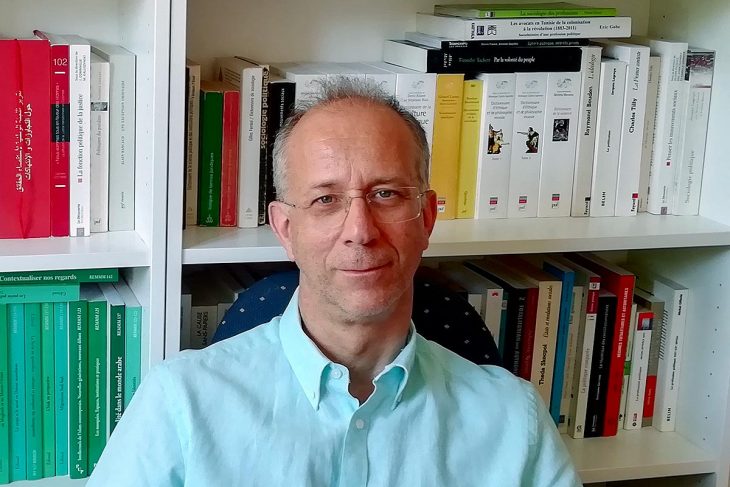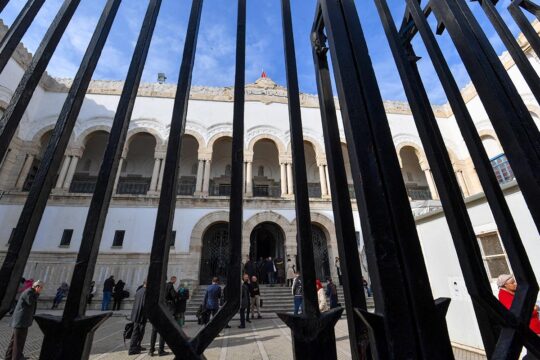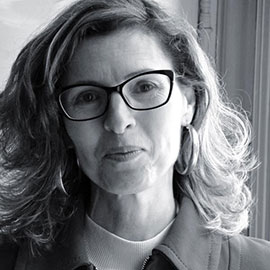JUSTICEINFO.NET: You write that transitional justice mechanisms are "closely related to the political climate in which they work or are initiated". Can you explain?
ERIC GOBE: This is amply demonstrated by the comparative study of transitional justice processes and "reconciliation policies". In the specific case of the Maghreb, comparing the Moroccan and Tunisian cases illustrates it perfectly. In Morocco, transitional justice is part of a dynastic continuity, where the Equity and Reconciliation Commission -- the Moroccan truth commission -- was, in the words of Frédéric Vairel [professor of political science at the University of Ottawa], an “as if” commission… as if it meant a transition to democracy, as if it would produce by itself a truth that could be endorsed by victims. While in Morocco transitional justice remains within the context of a dynastic monarchy, in Algeria there has been neither justice nor transition but only the strengthening of an authoritarian military regime that was for a time threatened by an Islamist party, the Islamic Salvation Front, and then by various armed groups claiming to be political Islamists.
The action of the IVD, which largely embodied the narrative of the Troika government, took place between 2014 and 2019 in a political context in which the “counter-revolutionary” narrative of the former regime elites became more and more prevalent in the public arena.
As for Tunisia in its recent past, it is a perfect illustration of the links between transitional justice mechanisms and political change. The reconciliation promoted by the international and national champions of transitional justice was born in a political context favourable to its implementation. The arrival in power of the Troika in 2011 with the Ennahdha movement as its backbone, i.e. the Islamist party that suffered the full brunt of repression under the regimes of Bourguiba and Ben Ali, was favourable to the establishment of a transitional justice mechanism. However, the Truth and Dignity Commission (IVD) began to operate in a political environment hostile to transitional justice. The debates around the IVD, over and above the controversial figure of its president and the conflicts between its members, are only understandable in the light of the 2014 election results, which brought part of the elites of the former regime back to power and perpetuated a policy of compromise between Ennahdha, which entered the government, and Nida Tounes, composed largely of ex-cadres of former President Ben Ali's party, the Democratic Constitutional Rally. The action of the IVD, which largely embodied the narrative of the Troika government, took place between 2014 and 2019 in a political context in which the “counter-revolutionary” narrative of the former regime elites became more and more prevalent in the public arena.
International aid has given credibility and visibility to local associations mobilized in this process and with political agendas. Have the victims benefited?
There's no contradiction. Local associative actors can both serve their own agenda and ensure that victims benefit from their efforts. They can play a central role in transitional justice processes by mobilizing broader segments of society, documenting human rights violations, lobbying governments, providing legal or technical expertise, directly assisting victims, etc. They can also play a central role in the process of transitional justice by providing support to the victims. At the same time, associations are not always representative of victims or local populations. They may promote some victims more than others or identify with specific categories of victims.
Do you think that transitional justice, by training the judges of the specialized chambers, can lead to the emergence of magistrates who are true guarantors of rights and freedoms?
According to the article by Emna Sammari [Tunisian expert in transitional justice], we have a long way to go. She says the selection process for judges was initially inadequate since some of the judges appointed to these chambers had never been involved in criminal law. She gave several examples of the political desire to disrupt the smooth running of hearings organized by the specialized chambers, including the decision by the Supreme Council of the Judiciary on judges’ posts for the year 2018-2019, since 45 per cent of the judges of the specialized criminal chambers were transferred elsewhere.
To speak of appropriation is a value judgment. Transitional justice is an eminently political process.
Political appropriation is often associated with the Tunisian experience. Is this a phenomenon that also concerns the other two Maghreb countries?
To speak of appropriation is a value judgment. Transitional justice is an eminently political process. In Algeria, a country that has not gone through a transitional justice process, the rulers have tried to deny the political nature of the violence. None of the official texts promoting "reconciliation" among Algerians mention the political origins of the civil war. In other words, as jurist Mouloud Boumghar notes in his work, the victors of the civil war have constantly tried to depoliticize the issues at stake in dealing with the violent past. This attempt to depoliticize the issues of impunity and accountability shows on the contrary the political dimension of dealing with the violent past.
In Morocco, political scientists Marouane Laouina and Frédéric Vairel have shown that the creation of the Equity and Reconciliation Commission (IER) in 2005 was the result of a confrontation and a deal between the government and activists, former political prisoners, committed to the precepts of transitional justice. It was activists of the Moroccan Forum for Truth and Justice, former extreme leftist and Islamist professional activists, who negotiated with the Moroccan government on the establishment and powers of the IER. In other words, by definition, insofar as this questionable notion is retained, justice cannot escape the problem of "political recuperation".
The Moroccan experience has often been cited as an example by Tunisian decision-makers. Why do you think that is?
Because the initiators of the Moroccan Truth Commission chose not to appoint any of the perpetrators and because the Moroccan monarchy has largely been able to control the transitional justice process. It organized a kind of "trial of the King under the portrait of the King", according to the expression of Yadh Ben Achour [Tunisian jurist]. It allowed the new sovereign, Mohamed VI, to make a break with the past by making his own the largely fictitious narrative of a Morocco resolutely committed to the "democratic transition" yet continuing the dynastic tradition of a monarchical regime, capable of conducting its own trial not "to condemn a legacy" but, as the Moroccan politician Abderrahim El Maslouhi puts it, "to reinvent it in the form of forgiveness and reparation".
The dynamics of transitional justice processes are closely linked to internal political changes, but also, as Limam shows, to international political stakes.
Political scientist Mohamed Limam raises again the issue of the late President Béji Caied Essebsi's bill on economic and financial reconciliation. In what way did that bill have an impact on the Tunisian process?
This project shows the desire of the economic and political elites linked to the former regime not to be implicated in the system of corruption. But in the end, the bill adopted by Parliament in September 2017 limited the category of amnesty beneficiaries to civil servants. In other words, the approved text was nevertheless watered down compared to the initial text. This episode shows the extent to which the dynamics of transitional justice processes are closely linked to internal political changes, but also, as Limam shows, to international political stakes.
The IVD has concluded its work, the trials of the specialized chambers are continuing, the government promises to publish the IVD's final report in the Official Gazette and to follow its recommendations. What future do you see for transitional justice in Tunisia?
Everything will depend, it seems to me, on future interactions between the actors of the Tunisian political scene and the transitional justice arena. I refer in my introduction to the work of Jelena Sobotic [professor of political science at the University of Georgia] who has worked in the Balkans. She shows that the taking up of transitional justice norms takes place in the struggles between various sections of the elite who make it a resource and/or instrumentalize it according to their political goals. We will have to see how in the future the categories of stakeholders she describes -- "norm resisters", "manipulators of norms" and "norm believers" -- interact in the Tunisian case to see the political and institutional dynamics of transitional justice.
Interviewed by Olfa Belhassine.







